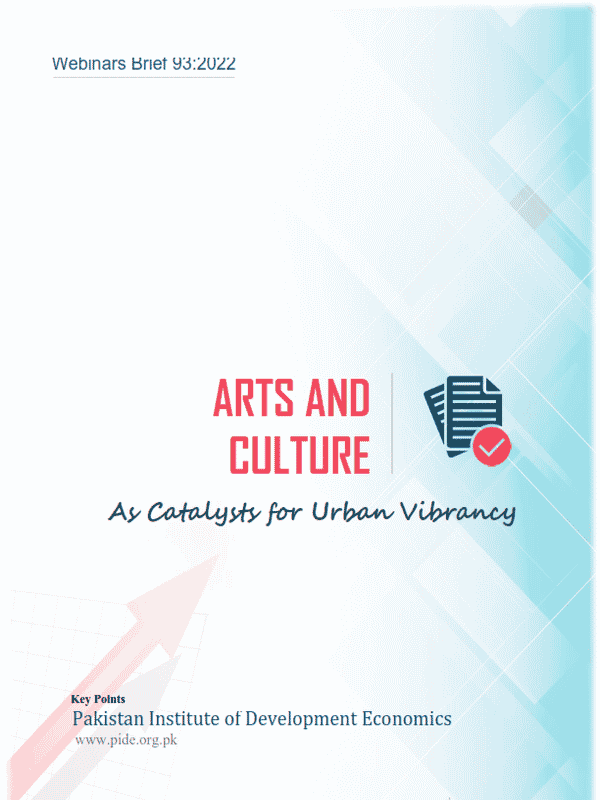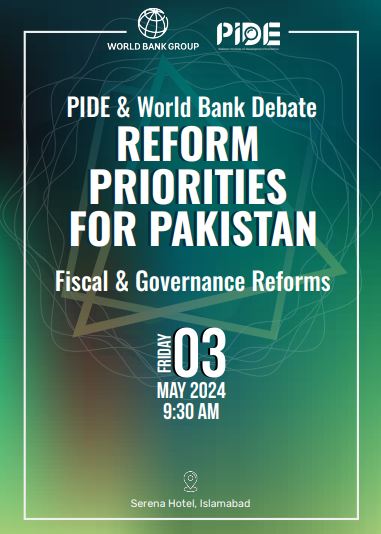Arts and Culture Centers as Catalysts for Urban Vibrancy
Publication Year : 2022
Author: Abbas Moosvi
Explore More : Webinars Brief
Key Points
Vicky Zhuang Yi-Yin, Co-founder and Director Olomopolo Media, Lahore
- Olomopolo started as a short-term project on theater performances, which came to a standstill due to lack of finances – which prompted us to take a step back and organize small, weekly events in our rented space.
- Arts, music, storytelling, academic talks, and workshops were what we focused on initially – which snowballed into something much larger, which you see today in the form of Olomopolo Media.
- Our primary objective is not to generate money, but to create a space for artists to express themselves – we call our space a ‘safe space’ which allows people to freely express themselves without the fear of judgment or harassment.
- Certain kinds of events, like academic talks, are not monetizable because people simply aren’t willing to pay: but these events, which cover things like depression, suicide, sex education, familial piety, etc. are still important – and we still host them.
- Our ultimate asset is human resource – which refers to people that have a passion for the arts and a sincere willingness to facilitate and support us; this is a great resource for emerging artists
- Arts and culture centers are assets for urban spaces – people need community, and to feel heard when they express themselves. When the pandemic hit, we turned to art, conversation, exchange, etc. as a source of hope and inspiration in an adverse time.
- Governments should not think of us simply as entertainment, but a source of vibrancy.
- We have a rich culture of people attempting to curate events in the arts, but these are scattered – operating in little pockets here and there; these need to be facilitated, the more the merrier.
- Countries that have supported their art have done well economically – Korea for instance has supported K-pop, and it has become so successful that people now can’t think of the country without talking about K-pop.
- Crowdfunding is not a big thing in Lahore for purposes of supporting businesses. They mostly revolve around ideas of charity for people in need – but that does not mean we cannot try changing that culture, in fact people later on in their careers have both the capacity and willingness, in some cases, to contribute on a monthly basis.
- Corporate funding is generally contingent upon rapid returns – initiatives like Coke Studio have created a massive platform but it isn’t exactly open to all artists, just the most well-known ones that can generate the kind of viewership that will make them money. This functions to sideline smaller, upcoming artists that aren’t able to access these exclusive platforms.
- Among our most significant achievements, I would include our 24-hour livestream of a prisoner on death row which was a collaboration with the World Justice Project and being able to talk about themes of war and death with children and inform them – in an accessible way – about the complexities of the world.
- Our audiences can be found among all classes and communities – depending on the nature of the event, which speaks to the broad range of our activities, and there is something for everyone.
Shumaila Amjad, Part-time Curator & Programs Manager The Second Floor (T2F), Karachi
- My personal objective has always been to contribute to society, with a focus on community spaces in particular which encourages discourse and the exchange of ideas and perspectives.
- Inclusion and safety have been the defining features of T2F since its inception, and they shape the activities of the organization to this day: it is a space where you can work, socialize, and comfortably be vulnerable.
- ‘Make sense, not money’ is the primary objective of community centers like T2F. We want to accommodate literally anyone who would like to be a part – topics from balloons to politics are all open – and we entertain all possibilities.
- This approach, however, has cost us. COVID-19 hit us pretty hard, and we experienced our financial situation rapidly dwindling – leading to all core members having to work full-time jobs elsewhere but also remain involved in T2F in a part-time capacity in order to keep things moving along.
- Sabeen, our owner, was a kindhearted person who wished to redress the restrictive culture of Pakistan where censorship and intimidation dominated – and T2F has always carried forward that legacy of inclusivity, openness, and diversity over the years.
- Our revenue model is based around ticketing, which we generally price around Rs. 100 (a meager amount) which is usually insufficient in covering costs. We cover the remainder through grants from foreign donor agencies – mainly due to a lack of options from local/provincial governments.
- The problem with grants is that they always come with strings attached – so we always need to plan our activities as per the demands of our funders, which restricts creative freedoms and restricts the range of areas we can explore.
- The beauty of public spaces is that they offer an avenue for people to exchange ideas and initiate business ventures through collaborative engagements and community centers are ideal for that.
- From an economic perspective, we serve as avenues for like-minded people to connect with one another. Networking is a crucial part of business. We create jobs, and we also provide spaces for people to escape their mundane jobs as a source of revitalization and meaning.
- The culture of charity in Pakistan does not value arts and culture. It mostly revolves around addressing the most basic needs like education, healthcare, and poverty eradication. Most people don’t perceive communal solidarity or artistic expression as needing ‘charity’.
- Philanthropists have both the capacity and willingness to contribute to these causes but they already fund so many initiatives that are more basic in their nature such as scholarships, school meals, healthcare, etc. which leaves little room for our kinds of spaces.
Faraz Talat, Founder and CEO, Cafe Sol / io – The Space, Islamabad
- Café Sol did not actually begin from a place of positivity. We were not trying to be heroes or ‘change the country’ but rather a place of despair. We created the space for ourselves in order to break away from the monotony of our lives. Soon lots of similar minded people, mostly on the margins of society, began visiting us frequently and developed the idea with us.
- We are not a for-profit, and we fund our activities via revenues from food/drinks and hosting events like comedy shows and music festivals etc.
- Economy is ultimately about exchange, whether that is via money or ideas – you cannot have one or the other, and we facilitate the flow of the latter. Additionally, without meaning and purpose (what are we fighting for?) people wouldn’t have the will to engage in commerce.
- We definitely need to have an association that can bring together organizations that are creating community spaces so that joint initiatives may be facilitated and the culture of arts can expand to incorporate more people.
- What we earn through our café, we use for our social activities. We need to rethink the culture of dependence on foreign aid for the arts. Our local authorities must begin taking an interest in these initiatives as a source of healing and creativity.
- Among our most significant achievements, I would include the support group dedicated to tackling depression and anxiety as an alternative to conventional therapy and medical intervention. We offered them different opportunities like theater activities or book readings etc. which have had such a great impact for people in troubled times.
- We have received little to no assistance from government agencies.
- It’s hard to create high-profile comedians due to the restrictive political culture, which is based on intimidation and harassment of artists and disallows them from expressing themselves freely – resulting in the stifling of the industry. This is a frequent problem at Café Sol, where the organization is blamed for promoting certain agendas when really its only job is to offer a space for various kinds of views to express themselves.
Young people generally tend to gravitate more towards these kinds of events because they are in their formative, exploratory stages and are looking to expand their horizons. Older folks are also regulars because they are well settled and know exactly what it is that they enjoy; in the middle however, people are generally closed off to these things due to time constraints and an unwillingness to experiment and broaden their perspectives.
© 2024 Pakistan Institute of Development Economics





